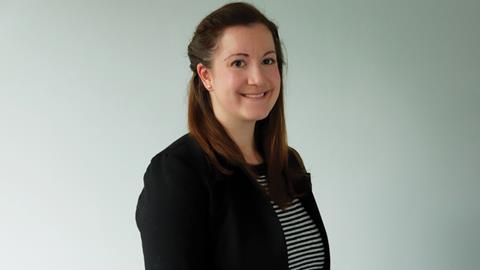Legal counsel, Essex
My father studied law and this inspired me to redirect my desire to argue against every perceived childhood injustice into a career. Undertaking work experience at school cemented the decision. I loved the problem-solving nature of the work and the possibility of helping someone navigate the legal landscape.
Studying law at university was interesting but if I could start again I would have done a different degree and then converted, because transferable skills are not limited to law degrees. However, the LPC and training contract provided excellent practical experiences. I applied to a range of regional and national firms and ended up being accepted for a training contract at a Yorkshire firm. While the deals I worked on were significantly smaller than those of my contemporaries at City firms, I was given a lot more hands-on experience running my own cases and managing client demands.
When I moved to a national firm upon qualifying, the first thing that struck me was the amount of resources available. From case management systems, to professional support lawyers and a huge network of specialist lawyers, it felt great to be connected into a wealth of knowledge.
The best part of working at larger firms is that you are surrounded by lawyers who are experts in their field. There is also a collegial feel among colleagues in the same department.
However, I witnessed the increase in the number of chargeable hours and billing expectations from associates during my seven years in private practice. I saw partners working extremely hard and committing a substantial part of their life to work. While I admired their sense of dedication, I didn’t see this as a sustainable way of life for me.
At DLA Piper I undertook a secondment to Raytheon to get an initial insight into the corporate client world. I found the move daunting as I was far removed from my comfort zone. However, I was soon excited by the opportunity to engage with all aspects of law again and gain an insight into a fascinating business.
Clients saw firms as faceless entities, which spit out answers to queries, without thinking about the person providing the service
My secondment turned into a six-month-long interview and I was offered the job permanently. I’m proud to work for Raytheon and to have a role supporting the UK’s defence strategy – it helps to provide purpose to my job and I genuinely love going to work.
In private practice the focus is on employees as fee-earners. I sometimes felt that clients saw firms as faceless entities, which spit out answers to legal queries, without thinking about the person working behind the scenes providing the responsive service. I work equally hard in-house, but the difference is that I can directly see the benefit of my work. The feeling when we win a bid or deliver a project on time for our customers is fantastic.
I support teams across the UK and internationally, so there is no expectation of ‘presenteeism’. This was more prevalent in private practice. I work a compressed week, and I manage my diary so I can do the nursery pickup and then log on again as required.
The other thing that I love about working in-house is that we are encouraged to support the business in a more holistic manner. Initiatives supporting the recruitment and retention of women are a business priority for Raytheon and I’m able to devote as much time to this as any other aspect of my job.
I was recently honoured with the ‘We are the City Rising Star in Defence Award’ for my work with the Raytheon Women’s Network and our internal mentoring programme. This was a real highlight as I have been involved in promoting diversity and inclusion throughout my legal career.
The best part of the job is the variety of work. We are a team of three lawyers supporting 2,000 colleagues across three legal jurisdictions and operating globally, which means that no two days are the same. The challenge is balancing what I’m comfortable advising on and those areas where I need to obtain further input from either our global network of Raytheon lawyers or external lawyers.
Skillsets of lawyers can be underused in companies. We can distil large amounts of information and critically analyse situations, and then communicate this in a meaningful way. This lends itself well to having legal counsel on cross-function teams working on business-wide projects and not just remaining within their legal silos.
































No comments yet